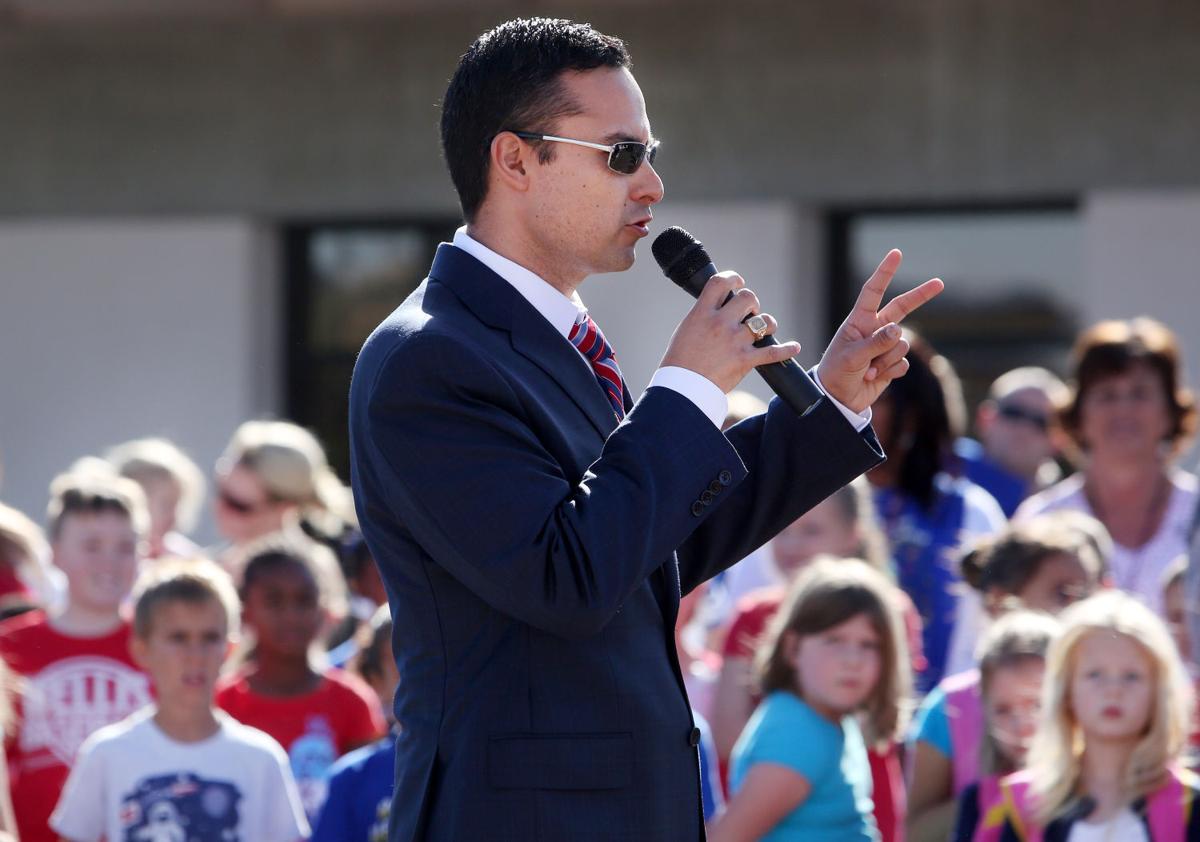The TUSD superintendent and school board member could not have been clearer: They intended to spend the district’s Proposition 123 money on paying teachers.
“If voters approve it, we’ll put the money where it matters most, which is teacher salaries,” TUSD Superintendent H.T. Sanchez said in a March 5 story by my colleague, Alexis Huicochea. “That’s the shortage, that’s the need, and they’re the folks working with the kids.”
In an April 2 radio interview, Tucson school board member Kristel Foster said, “What we would get with Prop. 123 is $8 million. I’ll go on record to say — that’s for teachers’ salaries.”
The initiative narrowly passed May 18, meaning additional money would be paid out to all the state’s school districts. But when June 28 came, those plans changed. The Tucson Unified School District Board approved a plan to spend what turned out to be about $9.6 million mostly on capital costs such as textbooks, computers and that nebulous category, “other.”
About 30 percent of the Prop. 123 money went to teacher salaries, giving each one a $700-per-year raise. That’s a 1.75 percent raise for a teacher making $40,000 per year.
It would be easy to call this a simple case of bait-and-switch: Supporters of the proposition convinced voters to approve it, then changed their plans for spending the money afterward. That did happen, but it’s not that simple.
The reason is that on May 10, a mere week before Prop. 123 went to voters, the TUSD board voted to give teachers a raise, using money from the maintenance and operations budget as well as the original Prop. 301, which voters passed in 2000.
In a political sense, the timing was peculiar. Why would you decide on raises that day when you’ll know how much money you’ll have just eight or nine days later? But when I spoke to Sanchez, he said the timing was deliberate, as negotiations with the Tucson Education Association and other unions had been going on for some time.
“When it started sounding and looking like it (Prop. 123) wasn’t going to pass, we made adjustments to ensure there were increases,” he said.
So the board passed increases, and then Prop. 123 passed, too. Which you could see as a dilemma, since TUSD had just passed a set of raises.
Or not. Member Michael Hicks was unconvinced by the argument that, having passed raises earlier, the board could use the Prop. 123 money for other purposes.
He’s got a good argument. Prop. 123 was passed as a way to resolve a legal impasse over Prop. 301, which increased the state sales tax by 6/10 of one cent and was supposed to mean increasing education funding annually with inflation. Sixty percent of that Prop. 301 money is to go to teachers’ pay.
So, taking money that is intended to replace money meant for teacher pay, then using it for something else, is questionable at best.
“That money should be going to teachers,” Hicks said. “It was sold as money for teachers. That was my beef with it.”
I asked Foster about her pre-election statements and how they squared with the post-election vote she cast. Foster, by the way, is up for re-election, along with fellow board member Cam Juarez. If either of them should lose, the board’s voting majority would change and the superintendent might well be replaced.
“We’re absolutely within the ballpark of what other districts are doing, if not better,” Foster said.
Here, she’s referring to the overall impact of recent pay raises. Sanchez made a similar argument, but went further, arguing that other school districts made one-time payments to teachers, while TUSD is actually increasing its base salary levels.
That argument, about the other school districts, doesn’t hold up under close scrutiny. My colleague, Huicochea, compiled all the local districts’ plans for their money. Many did make one-time payments to employees, but they also combined those with permanent pay increases.
Take the Flowing Wells school district. It raised teacher salaries by anywhere from $1,000 to $2,400 per year, depending on years of experience. The district also will make a one-time, 3.3 percent-of-salary payment to employees this fall for those who have been with the district for a year. And it made a $200 payment toward each employee’s health-care plan.
In other words, the long-suffering employees got a real cash infusion, both permanent and one-time.
After Foster and I talked the first time for this column, she called me back, afraid that I would accuse her of pulling a bait-and-switch. What people need to understand about her radio interviews, she said, is that she was not talking just to the audience and local voters, but to Sanchez himself, ensuring that he heard what her priorities are.
“It was a value of ours to give raises, and not just depend on 123,” she told me.
That may be true, but put yourself in the position of someone paying moderate attention as the Prop. 123 election approached. Such voters, even if they had noticed TUSD made salary increases before the election, would still not have thought that meant the 123 money would be spent elsewhere. Those promises had been made.





